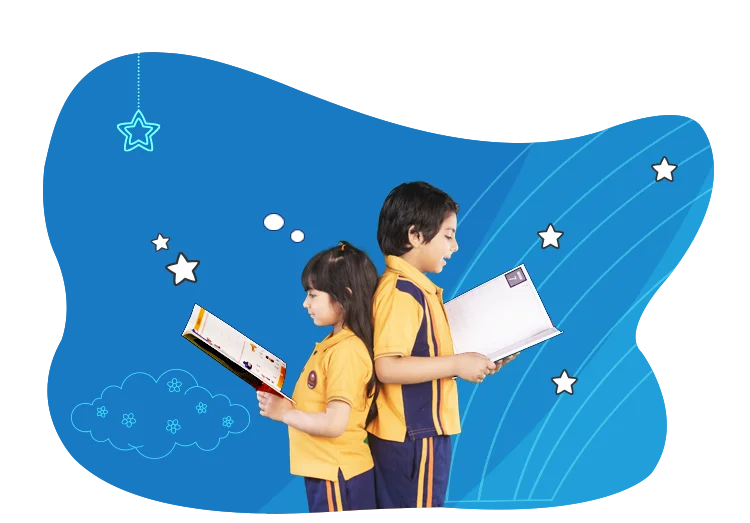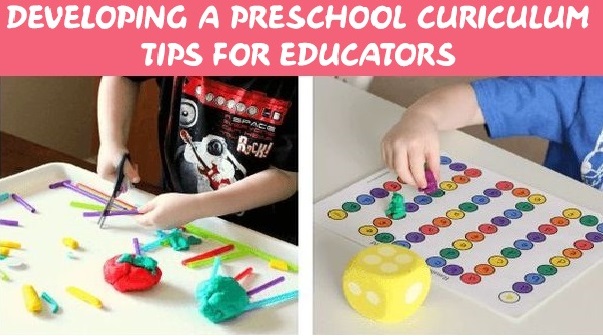How to Design & Develop a Preschool Curriculum: Tips for Educators
Preschool teaching is a complex art to say the least. It involves dealing with children that are venturing out of their homes from the protective care of their parents for the first time, and require a caring atmosphere. Having said that, pre-schooling is also about teaching students the basic practices of life that they develop on. The small children require a rich education at the hands of professional teachers, which is slightly harder to come by especially in India. There is a growing need for professionals and not many are as good as that.
However, in doing all of the above that is required of a professional, there needs to be a empirically researched curriculum that must be followed by institutes & teachers. There has to be a well-researched pre-school curriculum that helps in developing the cognitive abilities of children & helps them to develop various skills of reading, writing, etc.
As it is, there is no neatly designed preschool curriculum that is followed across the pre-schools in India, and every pre-school has it own panel of experts working out a curriculum that they think to be best. Nevertheless, there are certain basic elements that are generally considered important in any preschool curriculum. They are enumerated below & can also be looked upon as points to be kept in mind while, designing a preschool curriculum.
Reading skills of children- Any decent curriculum for small children will focus on & revolve around activities that encourage reading habits among children & help to improve upon it. The classrooms should ideally be a place where children are introduced with exciting reading material & develop an ability to read.
Writing skills: Writing comes with reading really. It is a basic skill that every preschool curriculum should focus upon. By writing what is meant is just elementary writing skills where the children learn to simply write letters, without worrying about other elements of writing such as grammar etc., which is focused on at a later stage.
Social skills: This is one important skill set, apart from the basics that any curriculum should focus on. Play schools are a lot about enabling kids to mingle with other kids & making friends. So, the activities revolve around doing things in a group etc.
Developing hobbies: A lot of play school activities are also about enabling children to develop hobbies like dancing, singing, drawing etc. A child picks up from these various activities & develops interests according to her own likings.
Any standard curriculum will definitely have all of the above things covered and a lot more. Although, it cannot be said that a standard curriculum consisting of only these skill sets is enough. The vast differences in backgrounds, cultures, etc. require that special curriculums are designed to deal with special cases of children coming from different backgrounds. To think of an example in case of India, a child coming from a rural background, or a certain social group might feel more lost in an environment that is radically different for them than an urban toddler coming from a privileged social group. A need then arises for the curriculum creators to try and fill those gaps that might lead to bigger problems later on. Therefore, the diversity of backgrounds becomes a real challenge for any curriculum maker.
The Diversity Challenge in India
The diversity of backgrounds among students in a classroom is a much bigger challenge in our country than anywhere else. As a result of this, designing a curriculum becomes a bigger challenge. The regional, caste, class background of a course has an impact on how the early years of a child pan out. When that child comes to a school, the aim to achieve such a balance in a classroom that the child can rise above those inequalities. In doing so, what is required is a very personalized curriculum that focuses on the special needs of the child; the teachers are also required to establish a personal touch with every child in the classroom.
Over and above this, the curriculum planners must also be sensitive towards such social issues. An educator that can understand how the social equations work in a society can help design a curriculum that helps overcome the different experiences of children & help achieve the required balance.
Adopting Liberal Techniques
The task of early childhood education is to enable children to learn the basics of life, and not to burden children with any unnecessary workload. To be able to do so, reliance has to be placed on children friendly, creative methods in the classroom to send across the message to children. Thus, it also becomes important for educators to use the available technology while designing programs for small children.
There are certain social science theories that look at educational institutes in a negative sense as places that condition & enslave children to defined ways of living lives. In order to be able to challenge such theories, there is a need to transform schools into places that promote free thinking & freedom of action. Liberal curriculums that allow for such spaces to evolve will go a long way in doing so.
The article only tries to highlight a few points that must be kept in mind while designing any curriculum for small children. The list can never be an exhaustive one; it focuses on some common skills that are always taken into consideration while designing a curriculum & mentions certain challenges that an educator must be aware of. A curriculum is a living document that must change at all times according to the requirements & challenges that develop at different times. Lastly, It should also be a document that is accessible to everyone at all times, and provides room for incorporating ideas arriving from diverse corners; the task of designing a preschool curriculum requires that educators be connected with various social players that can have crucial things to add to it.




